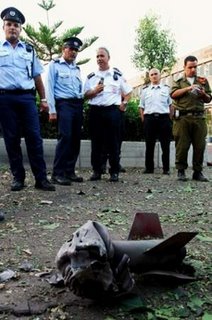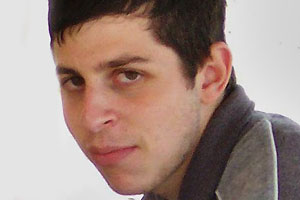 The repetition of the reports of Qassams being fired into Israeli communities makes for boring reading - and for a nightmarish kind of day-to-day life for those who have to endure them.
The repetition of the reports of Qassams being fired into Israeli communities makes for boring reading - and for a nightmarish kind of day-to-day life for those who have to endure them.Though the Israeli military is in a position today where it can blast the living daylights out of any portion of Gaza it chooses, the terrorists who operate from there see logic in continuing to fire their missiles into any Israeli town within range and invite response. It would be superficial and misleading to say these people are determined. More accurate to say their hatred is relentless and their moral compass permanently out of action.
Yediot describes today, Friday, as being a day of panic in the Israeli communities close to Gaza. Since early this morning, six missiles have been fired into the area from Gaza. The shrieking Red Dawn alert system is in a state of constant activation, causing nerves to be even more frayed. One missile hits an agricultural produce factory near the Sha'ar Hanegev Regional Council offices. The factory is damaged and one of the employees is lightly wounded. Another missile lands on the grounds of the Kibbutz Saad agricultural community (see picture). Four more crash into the town of Sderot. Yediot's report provides these additional human-scale details:
Three residents were hurt by the rockets' shrapnel. They were treated by a Magen David Adom emergency team and were evacuated to the Barzilay Medical Center in Ashkelon. The rockets were seen by the town's spokesman Yossi Pinchas Cohen, who is usually in charge of reporting about the rocket fire. This time he was forced to deal with a threat on his private home. "The rocket landed right next to my house, at a basketball field near the new community center," the spokesman said. "There was great fear in my house, the children began crying and everyone panicked. Lots of people also gathered outside, and there is a great commotion here in the city." Panic erupted in almost all the Qassam falling sites and many residents gathered in the area, protesting the ongoing fire since Thursday evening. One rocket fell next to a bus station. "The Qassam hit right next to the station, and half a minute later a bus arrived there to collect passengers," an eyewitness said. "If it had been one minute earlier, it would have been hit and it would have definitely been a great disaster."







